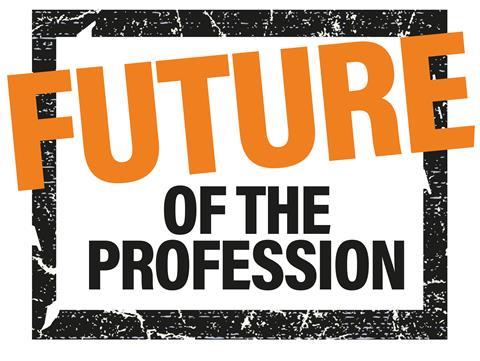Research also highlights concerns around work being copied and threat to jobs

More than two in five architects are now using AI despite disagreements over how useful the technology is.
New research by RIBA found 41% of UK architects are using AI on at least the occasional project, although less than half of those believe it has made the design process more efficient.
The RIBA AI report, published last week, includes responses from a survey that sought architects’ perspectives on their current and prospective applications of AI.
Over the next two years, 54% of architects anticipate incorporating AI into their practices, with 57% expressing the belief that it will contribute to increased efficiency in the design phase.
The commitment to costed investment plans appears tentative however, with 69% of respondents say that their practices have not invested in AI research and development, with only 41% anticipating future investment.
Opinions are also mixed over the advance of AI into the profession, with 36% of architects seeing it as a threat, 34% not seeing a threat and 30% remaining neutral.

RIBA president Muyiwa Oki said: “AI is the most disruptive tool of our time, and we cannot overstate its role in shaping the future of architecture – from the character of our cities to the quality of our built environment.
“Our findings show architects are curious and open-minded about AI, and some of us are true pioneers.
“By fostering interdisciplinary collaboration and a culture of responsible innovation, we can harness the power of AI to create a more inclusive, resilient and sustainable built environment. There’s no turning back.
“RIBA’s new Expert Advisory Group on AI is building on the findings of this report to look at the broader ethical, professional, and competitive implications of the widespread integration of AI.”
The report underscores the potential role of AI in sustainable urbanisation, given the projection that 70% of the global population will inhabit cities by 2050. A notable 57% of architects anticipate employing AI specifically for environmental sustainability analysis within the next two years.
Just under half, 49%, of respondents said that improved digital tools, including AI, would be central to addressing the growing complexities associated with buildings, such as climate adaptations and smart building technologies.
A significant proportion, 58% of architects, expressed concerns that AI heightens the risk of their work being imitated.
Concerns also exist regarding the potential threat to jobs and the future of the profession, with 36% perceiving AI as a threat to the architectural profession.
What architects who responded to the survey said:
“AI will become an inevitable part of our increasing need to become more efficient, whilst also simultaneously helping us to deal with ever greater complexities of design and construction.”
“We use AI to provide code for the automation of various aspects of project and document management, but still to a very limited degree.”
“We use virtual environments and digital twins to achieve a radical reduction in the carbon, energy, water, and waste footprints of costly physical construction.”
“AI can offer the opportunity for architects to work with more efficiency and remove some of the more tedious work. If harnessed it can result in better work culture, fees and salaries.”
“Harness it, learn it, shape it and use it. It’s coming and be on the wave rather than behind it. It’s just another tool to use to generate better architecture. It doesn’t take away the vision of the designer but assists it.”
“AI cannot produce that blue sky moment the architect can.”
“Current GenAI models have been trained on unlicensed copyrighted data. People who use them might be liable for copyright infringement.”
“I generally don’t think AI can replace our professional integrity nor creativity, but I believe AI can help us to advance our design much ‘quicker’ rather than ‘better’. I believe we are still the driver and what comes out of AI can only be as good as what has been put in it.”
“There are no real regulations in place and the ethical risks are very significant, from intellectual property, design creativity, employment and potential risks on the built environment too (if things go wrong).”
















4 Readers' comments